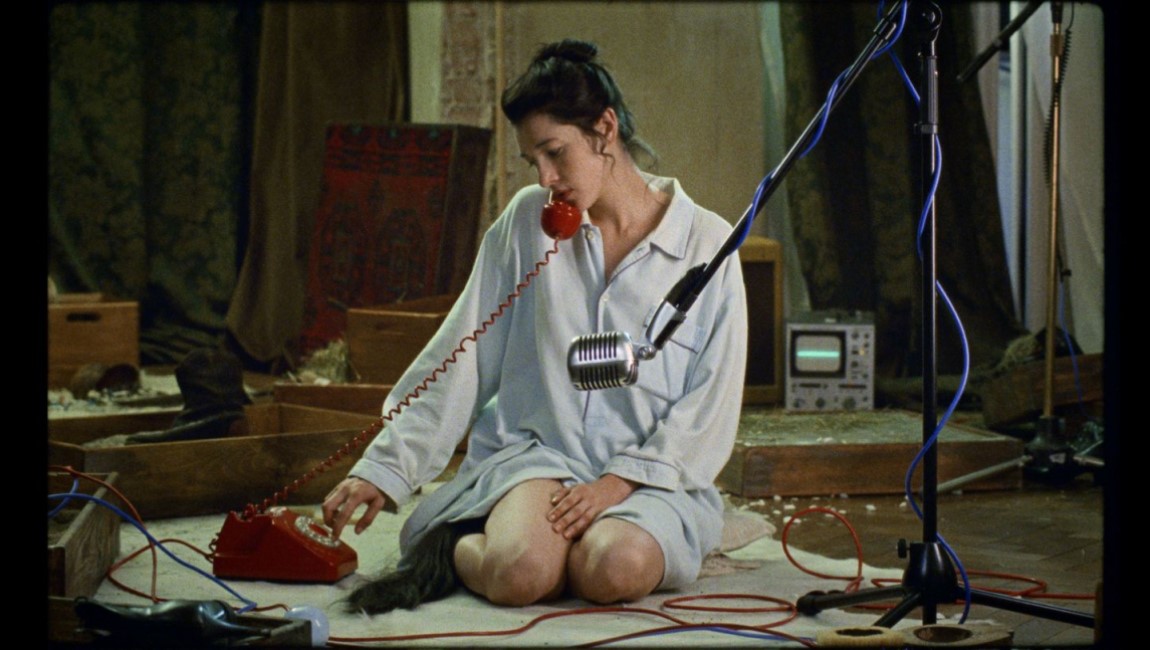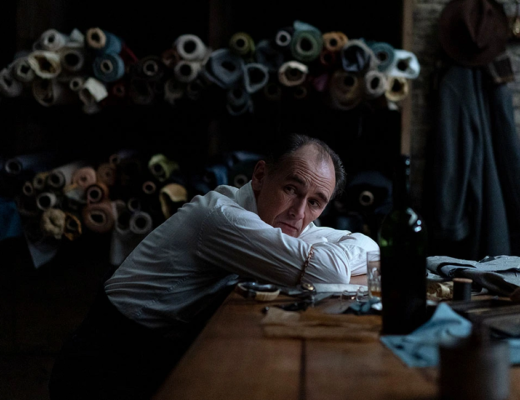Far too many movies demand far too little from viewers. Maybe they aren’t asking the right questions, or perhaps the questions themselves are just going over our heads — or, more accurately, it could be because they aren’t really asking anything all that penetrating in the first place. Feature-length films, for the most part, like to set up a primary figure for identification, saddle them with a series of relatable motives and conflicts, and eventually, at one point or another, resolve their problems in a neat and orderly fashion. In-one-ear-and-out-the-other cinema; easily digestible narrative rhythms and beats can only make us feel so much after so many go-arounds. Or, to be more specific, they don’t affect our hearts or our minds because their primary interests aren’t located in areas that necessitate the medium of cinema itself. Instead, they focus on presenting something close to what one could call an indexical, almost flat view of reality and jury-rigging a narrative around it; again, it all goes back to that word “relatable,” the place that all of this simplicity stems from.
Keeping all of that in mind, Piaffe — the feature-length debut of Berlin-based conceptual artist Ann Oren — is a profoundly relatable film, albeit on a kinesthetic level, and not in any of the aforementioned ways that are traditionally associated with the medium. But it is, first and foremost, a filmic work above anything else (calling it an “aesthetic object” would be a tad too precious), where its most alluring cursory charms are produced by strictly cinematic means. Shot on 16mm — aside from a few rather plastic-y looking digital images that announce themselves on sight — and displaying a keen formal rigor right from the jump, the film moves from scene to scene based less on narrative momentum and more on an intuitive — and, at times, almost gestural — logic that borders on instinctual, where whatever happens next doesn’t necessarily need to happen, but does and generally makes enough sense in the given moment to never derail the film’s dynamic sense of spontaneity.
As a result of our central protagonist’s profession — Eva (Simone Bucio, who delivers the rare type of intense physical performance that feels natural) is a foley artist, one who’s currently working on a commercial that features the titular trotting horse — we get all manner of audio-visual syncretisms throughout that slowly destabilize the viewer’s sense of space, time, and overall perception. We see Eva embodying the horse by producing a “galloping” noise through the sand, with the silent steed’s image being looped over and over again until they begin to match; soon after, Eva’s footsteps outside begin to conspicuously sound like clopping hooves, with subtle yet discernible changes in the overall audio mix becoming more frequent. After a while, Eva begins to act like the world around her is slowly coming apart at the seams; we aren’t explicitly told this, but through image and sound alone, we too begin to disassociate along with her.
Yet, describing the film according to these superficial terms doesn’t even begin to do justice to the actual content of the film itself, or even its wildly fluctuating tone and adventurous sense of playfulness. Truth be told, I don’t even want to tell you about most of what happens here as if it’s a simple plot description; it’s a film that truly needs to be experienced with as little context as possible going in, to bear witness to how each scene is rendered and actualized in the present. Like any great piece of art, simply stating what’s happening does the piece little-to-no favors; but I’ll try my best. After a few go-arounds with an uptight director who demands a more “natural” horse sound for the ad, the meek Eva eventually sprouts a mane and tail — both of which turn into fetish objects for the young artisan — and discards any remaining signs of homogeneity in the process. She also visits a few German nightclubs, engages in rough foreplay a few times with a stranger-turned-lover, and frequently visits her mentally unstable sibling, all before Eva finishes the commercial and finally shaves the hair clean off her newly sprouted tailbone. Thankfully, at least for viewers, there’s little easy psychology offered up in order to explain things away by the time any of this happens; Oren has wisely focused her efforts on making audience members question their own state of mind before asking them to interpret Eva’s.
Of course, despite the many impressive and memorable elements of this boldly original, ferociously sensual, and even outright dangerous little feature, one should still make no mistake: Piaffe is an equally bizarre and baffling spectacle, one that will be off-putting or else seem uninviting to some, as it requires you to vibe out on a very idiosyncratic wavelength in order to truly get anything out of it. But while the film’s character certainly can spill over into the realm of abrasiveness or serious quirk, it’s all so earnestly balanced that it becomes less about any intent toward “weirdness” and more about its unpredictability. It’s a film that, if anything, proves you can relate to others on a broad humanist level while still being exciting and novel on a moment-by-moment basis. So while Piaffe may not click in exactly the right way for all viewers, it’s still a thrillingly indefinable achievement that demands your attention and, at the bare minimum, your respect. This is about as radical and forward-thinking as contemporary cinema gets.
DIRECTOR: Ann Oren; CAST: Simone Bucio, Simon(e) Jaikiriuma Paetau, Sebastian Rudolph; DISTRIBUTOR: Oscilloscope Laboratories; IN THEATERS: August 25; RUNTIME: 1 hr. 26 min.
Originally published as part of Locarno Film Festival 2022 — Dispatch 1.







